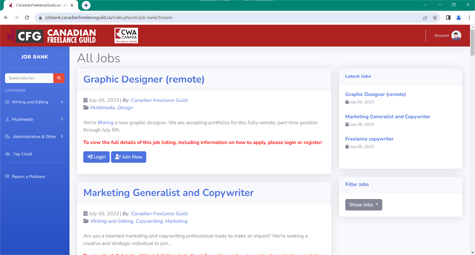A pressing question on the minds of many considering journalism as a career is “do I need a journalism degree to ‘do’ journalism?” Or can experience alone be a gateway to paid journalism work?
I spoke with two aspiring journalists who have been asking themselves this same question while working in the field, gaining the bulk of their experience in community media organizations without journalism degrees under their belts.
Christian Deo, 25, and Haseena Manek, 24, have been working in community media for years. Deo has been interning at CHRY Radio since September 2013 and completed a degree in the Radio and Television program at Ryerson University in 2012. Manek completed her BA in Linguistics and Women’s Studies at York University in 2013 and worked in community media during her degree and beyond, including CHRY Radio and publications such as the Ryerson Free Press, York University Free Press, and Grey Zone.
Deo and Manek have been searching for full-time work for several years, to no avail. Manek has obtained several paid freelance jobs, but nothing more permanent. Deo had an internship with the CBC as part of his university program and has also done some freelance print media and video editing work, but has been steadily looking for work as a radio reporter. While their job searches have led to some interviews, Deo and Manek have been told that they employer offered the job to someone with more experience.
As Deo and Manek have learned, it has become extremely competitive to land a job in media industries, and increasingly, journalism degrees and diplomas are becoming mandatory. This will likely be the case in years to come, as journalism jobs are expected to decrease over the next couple of years.
Even with a journalism degree, it has become an industry norm to work one or several paid or unpaid internships before securing more stable employment. Precarious labour is on the rise in all industries, but is particularly prevalent in journalism, where internships are essentially replacing entry-level positions. The Ministry of Labour does not have data on the extent of unpaid labour in Ontario, but it is estimated that upwards of 150,000 internships in the province do not comply with the Employment Standards Act.
In such a climate, how do community media experiences benefit someone trying to find a job? Manek and Deo have found that potential employers’ responses to their community media experience varied. Manek believes that, despite her experience, her resume sometimes does not make it into the interview pile because she does not have a journalism degree. “Experience is more valuable but if you can’t get an opportunity to show that you have it and can use it, it is very disheartening,” she says.
Deo said any experience looks good to an employer, but he feels many see a big difference between volunteer and paid work experiences. He struggles with how to highlight his community radio experience on his resume. He knows it is valuable, but is unsure whether is should be placed under “work experience” or “volunteer experience.”
Deo’s difficulty categorizing his experience relates to broader trends in the journalism field with the rise of intern culture and unpaid labour positions. Internships and unpaid labour allow employers to offload costs of training new employees onto emerging workers and recent graduates. Students accept unpaid opportunities because they want experience that will give them a leg up. This creates a culture of “working for experience,” which youth employment lawyer Andrew Langille argues devalues one’s labour and self worth.
Community media organizations, however, stand apart from profitable companies that exploit free labour. Historically, campus and community media organizations have served as training hubs for aspiring media workers or citizen journalists. They often do not have the resources to pay people for their labour, relying instead on a few paid employees and a lot of volunteers and interns.
As non-profits, community media organizations can be excellent training ground for aspiring media workers. Deo compares his internship at the CBC to his time spent in community radio: “While I was at the CBC, one of the first things they told me was that I would be not be doing any of the work of producer would be doing and they were very strict about that. AT CHRY I am encouraged and expected to fulfill the duties of a regular radio producer, writing scripts, researching stories and hosting live on-air. Essentially I am doing the duties of any producer within the radio news industry.”
Community media organizations can provide hands on experience and opportunities to learn skills, from running the board in community radio to investigative reporting for a campus newspaper. Deo says that his technical skills have vastly improved during his tenure at CHRY. In addition, many community media organizations guarantee references for volunteers (Deo noted that the CBC would only provide a reference for him within eight months of his internship).
Many community media organizations have anti-oppressive mandates with a focus on marginalized communities and systemic inequalities, and deliberately distinguish themselves from mainstream media organizations with respect to the types of reporting they are engaged in. For example, the National Campus and Community Radio Association’s (NCRA) statement of principles states that because the mainstream media often does not recognize social and economic inequalities and can in fact reinforce them, the NCRA (and its member stations) is committed to serving the needs of “socially, culturally, politically and economically disadvantaged groups in society.”
Deo notes that the distinct nature of content that CHRY and other community media organizations broadcast might actually be a barrier to employment in mainstream media: “Some employers might listen to our show and think our stories are too biased or radical.” He characterizes the coverage as alternative to the mainstream, but he does not feel this compromises the validity. “We are honest about our slant, whereas mainstream media pretends to be unbiased,” he said.
Volunteer jobs in community media provide space to tell stories that are not being told by mainstream media. So, are media workers who are more in touch with local communities and disadvantaged groups less likely to be hired for paid positions?
It is not fully clear whether or not community media is breaking down barriers to the accessibility of the media labour market. It certainly seems clear that they are serving an alternative function to mainstream media by reporting from anti-oppressive frameworks, closely focusing on community based story-telling and not adhering to advertisers or ratings.
If more ‘professional’ or mainstream journalism roles are failing to reflect and report on the diversity of the population due to increasing equity issues that arise from a precarious and intern culture in the journalism field, community media are picking up the pieces, but in an unpaid capacity.
As tuition prices continue to skyrocket in Ontario, far higher than inflation or minimum wage, student debt has unsurprisingly suffered the same fate, reaching an average of over $28,000. With a journalism degree as the first barrier, who can afford to work for free post-graduation with no clear path to stable, paid, employment? For those who do not have assistance from their families, the answer is clear. One would have to go into significant and often further debt to gain the experience they need, especially in a city like Toronto.
This raises questions of equity and diversity with respects to journalism as a profession. If those from wealthier backgrounds are more likely able to work for free to gain the unpaid experience, then what happens to the stories being told and who gets to tell them?
Perhaps journalism school will not be officially required for entry into the profession any time soon in a regulatory sense, but this does not mean that it is not happening de facto by requiring that candidates have completed journalism school for entry into the labour market. So what happens to those who have gained valuable, hands-on experience at the community level?
Deo and Manek have each applied (and been accepted) for entry into a one-year bachelor of journalism degree program at the University of King’s College and the Erasmus Mundus master’s in journalism media and globalization programs respectively for September 2015, as they feel this is a necessary step given their difficulties securing stable employment in the field. For them this may mean student loans and more time out of labour market to pursue a career path they have already been actively working in.
As precarious work continues to plague the field of journalism, the question becomes about more than what volunteer and community experience is worth to employers, but about what is left out when those voices do not have access to stable labour in the journalism field.
This article was funded by Media Works, a project of CWA Canada, in collaboration with the Canadian University Press and the National Campus and Community Radio Association. For more original labour stories and a handbook on media worker rights and labour reporting, visit www.media-works.org.




